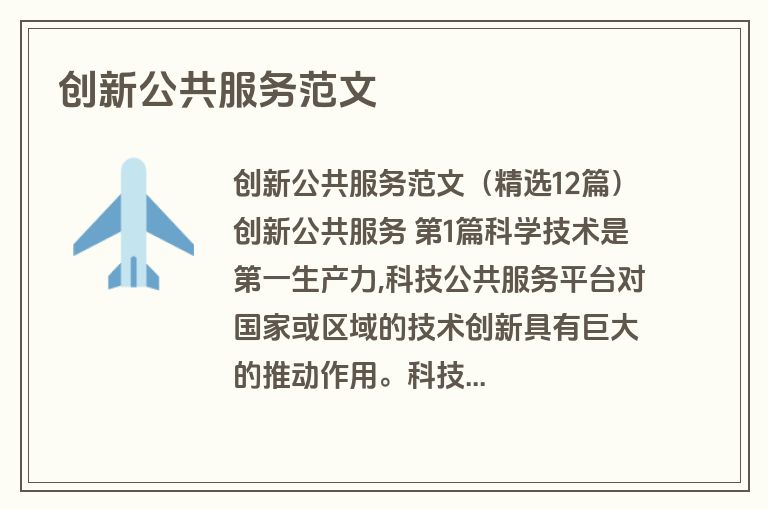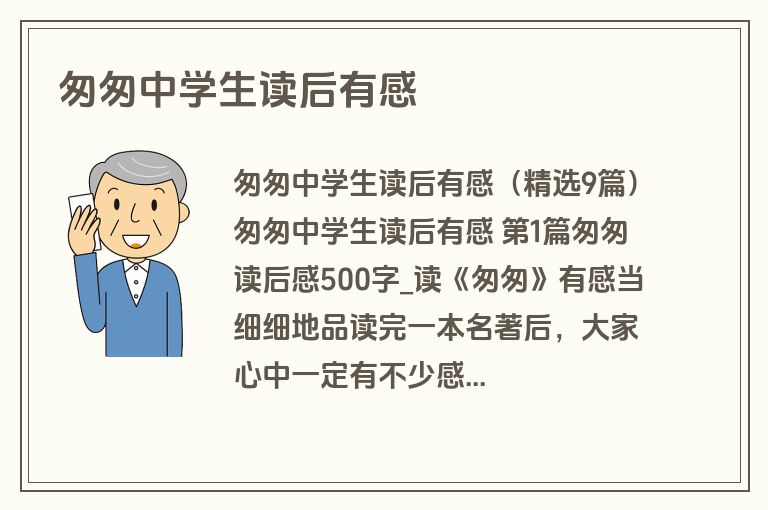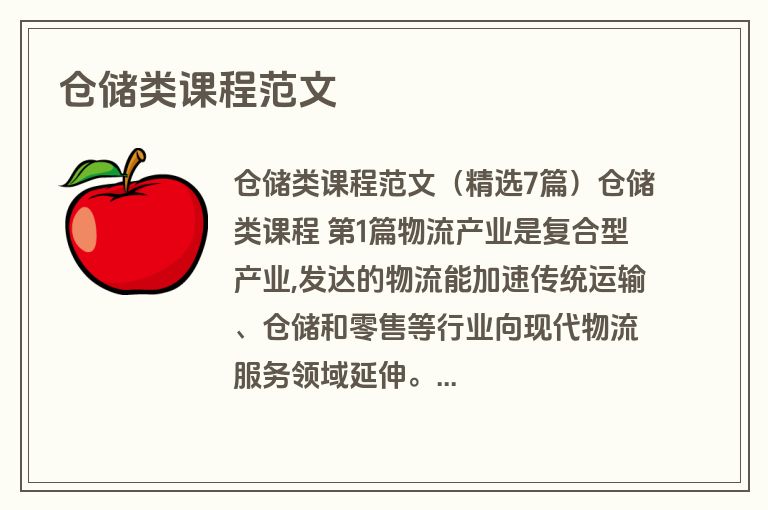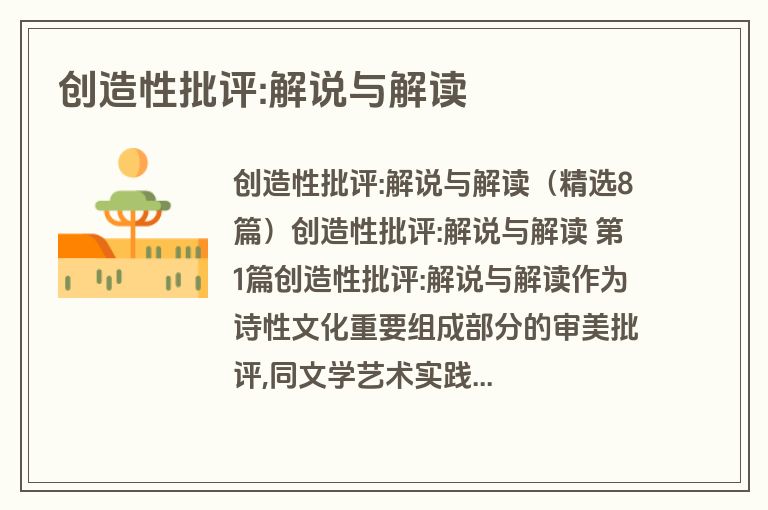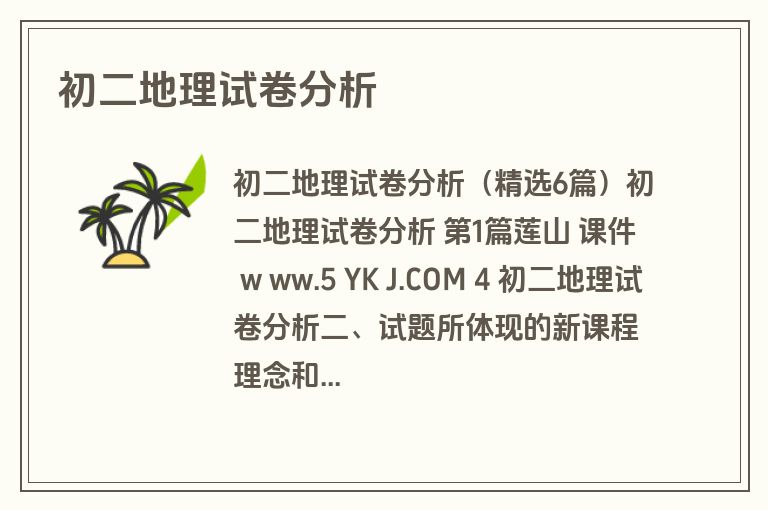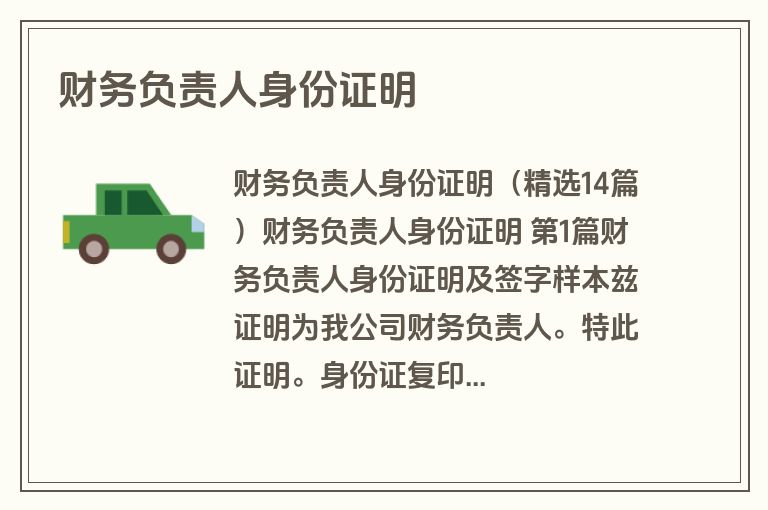宾语从句的用法总结(精选8篇)
宾语从句的用法总结 第1篇
一、宾语从句的连接词
从属连词
连接宾语从句的从属连词主要有that,if,whether.
that引导表示陈述句的宾语从句,而if和whether引导表示“是否”的宾语从句.
He told me that he would go to the college the next year
他告诉我他明年上大学.
I don’t know if there will be a bus any more.
我不知道是否还会有公交车.
Nobody knew whether he could pass the exam.
没人知道他是否会通过考试.
连接代词
连接代词主要有who, whom ,whose ,what ,whoever ,whomever ,whosever, whatever, whichever等.
连接代词一般指疑问,但what, whatever除了指疑问外,也可以指陈述.
Do you know who has won Red Alert game?
你知道是谁赢得了红色警报的游戏?
The book will show you what the best CEOs know.
这本书会告诉你最好的执行总裁该了解些什么.
Have you determined whichever you should buy,a Motorola or Nokia cell phone?
你决定好是买诺基亚还是摩托罗拉的电话了吗?
连接副词
连接副词主要有when,where,why,how,whenever,wherever,however等.
He didn’t tell me when we should meet again.
他没有告诉我什么时候我们能再见面.
Could you please tell me how you read the new panel?
你能告诉我怎么用这个新的操作盘吗?
None of us knows where these new parts can be bought.
没有人知道这些的新的零件能在哪里买到.
二、动词的宾语从句
大多数动词都可以带宾语从句
We all expect that they will win , for members of their team are stronger.
我们都预料他们会赢,因为他们的队员更强壮.
He told us that they would help us though the whole work.
他告诉我们在整个工作中,他都会帮忙的.
部分“动词+副词”结构也可以带宾语从句
I have found out that all the tickets for the concert have been sold out.
我发现这场音乐会的所有票都卖光了.
Can you work out how much we will spend during the trip?
你能计算出这次旅行我们将花费多少钱吗?
动词短语也可以带宾语从句
常见的这些词有:
make sure确保 make up one’s mind下决心 keep in mind牢记
Make sure that there are no mistakes in your papers before you turn them in.
在上交试卷前确保没有任何错误.
可运用形式宾语it代替的宾语从句
①动词find,feel,consider,make,believe等后面有宾语补足语的时候,则需要用it做形式宾语而将that宾语从句后置.
I think it necessary that we take plenty of hot water every day .
我认为每天多喝开水是有必要的.
I feel it a pity that I haven’t been to the get-together.
我没去聚会,感觉非常遗憾.
I have made it a rule that I keep diaries.
我每天写日记成了习惯.
We all find it important that we (should) make a quick decision about this mater.
我们都认为对这件事马上做出决定很重要.
②有些动词带宾语从句时需要在宾语与从句前加it
这类动词主要有:hate, take , owe, have, see to.
I hate it when they with their mouths full of food.
我讨厌他们满嘴食物时说话.
He will have it that our plan is really practical.
他会认为我们的计划确实可行.
We take it that you will agree with us.
我们认为你会同意我们的.
When you start the engine, you must see to it that car is in neutral.
开启发动机时, 一定要使汽车的离合器处于空挡位置.
③若宾语从句是wh-类,则不可用it代替
We all consider what you said to be unbelievable.
我们都认为你所说的是不可信的.
We discovered what we had learned to be valuable.
我们发现我们所学到的东西都是有用的.
三、介词的宾语从句
用wh-类的介词宾语从句
We are talking about whether we admit students into our club.
我们正在讨论是否让学生加入我们的俱乐部.
The new book is about how Shenzhou 6 manned spaceship was sent up into space.
这本新书是关于神州6号载人航天飞船是如何升入太空的.
用that,if引导的介词宾语从句
有时候except,but,besides三个介词后可见到that引导的宾语从句
I know nothing about my new neighbor except that he used to work with a company.
对于我的新邻居我只知道他曾在一家公司上班,其他一无所知.
四、形容词的宾语从句
常用来引导宾语从句的形容词有: sure,certain,glad,please,happy,sorry,afraid,satisfied,surprised
I am sure I will pass the exam.
我确信我会通过考试.
I am sorry that I have troubled you so long.
很抱歉我这么长时间在打扰你.
He is glad that Li Ming went to see him when he was ill.
他很高兴在他生病的时候李明能去看望他.
五、if,whether在宾语从句中的区别
① if和whether在作“是否”解时,引导宾语从句常放在动词know,ask,care,wonder,find out等之后,介词后一般不用if
② 少数动词,如:leave,put,discuss,doubt后的宾语从句常用whether.
③ whether后可以加or not,但是if不可以.
④ 在不定式前只能用whether.
(如:I can’t decide whether to stay. 我不能决定是否留下。)
⑤ 避免歧异时,我们常用whether而不用if.
六、哪些宾语从句不可以省略引导词that
当that作learn,suggest,explain,agree,wonder,prove,mean,state,feel,hold等动词的宾语时;
当宾语从句较长时;
当主语状语置于主句尾,宾语从句之前时;
当主语谓语动词(包括非谓语动词)与宾语从句之间有插入语时;
当一个动词带有两个或两个以上宾语从句时,此时第一个that可以省略,第二个that不可以省略;
当宾语从句中的主语是this,that或this,that做主语的定语时;
当宾语从句是双宾语中的直接宾语时;
当宾语从句的主语是非谓语动词或主语从句时;
当主语中的谓语动词是固定词组时;
当宾语从句有it做其先行词时;
在直接引语中,转述分句把宾语从句隔开时.
七、宾语从句的否定转移
主句的谓语动词是think,believe,imagine,suppose,consider,espect,fancy,guess等,并且主句的主语是第一人称而且为一般现在时,从句的否定词一般要转移到主句上来,其反义疑问句一般与宾语从句一致.
I don’t think he will come to my party.而不能说成I think he won’t come to my party.
我认为他不会来我的舞会.
I don’t believe that man is killed by Jim,is he?
我认为那个人不是Jim所杀的,是不是?
如果宾语从句中有某个含有否定意义的形容词或副词,其反义疑问句要用肯定形式.
We find that he never listens to the teacher carefully,does he?
我们发现他从来不仔细听老师讲课,是不是?
八、宾语从句的时态和语序
当主句为现在时或将来时,宾语从句的时态一般不受主句的时态所影响.
当主句为过去时
①从句用一般过去时或过去进行时表示与主句谓语动词动作同时发生
I only knew he was studying in a western country,but I didn’t know what country he was in.
我只知道他当时在西方的一个国家读书,可不知道是哪个国家.
He asked me if I was reading the story The Old Man and the Sea when he was in.
他问我他进来的时候我是否正在读<<老人与海>>.
②从句过去完成时表示该动作发生在主句谓语动作之前
He told me that he had told Mary about the meeting already.
他告诉我他已经把有关会议的事情告诉的了Mary.
③从句谓语用过去将来时表示该动作发生在主句谓语动作之后
The reporter asked if the government would take necessary measures to put down the to-do.
记者问政府是否会采取必要的措施镇压骚乱.
如果从句是一个客观真理,那么从句的时态不根据主句的时态而变化
The teacher said that the moon goes around the earth yesterday.
老师昨天说月亮绕着地球转.
当宾语从句的引导词是who,which,what,when,where,how,why等表疑问时,不能按正常语序安排,经常将这类引导词置于句首
Who do you think the public might choose as their favorite singer this year?
你认为今年公众会选谁为他们最喜欢的歌手.
宾语从句的用法总结 第2篇
引导一般疑问句的引导词是“if”和“whether”。
引导特殊疑问句的引导词则是众多的特殊疑问代词或疑问副词, what who when 等。
Eg: He asked me if (whether) I was a teacher.
直接引语变成宾语从句。
直接引语:直接引用别人说的话。
间接引语:转达别人说的话。
宾语从句教学引发的联想(英文) 第3篇
As everyone knows,the knowledge of Object Clause in Junior English is a difficult grammar.Learning it well is surely helpful for sudents to learn other clauses.Teachers should help students understand the structure and characteristics.Observe the following to find the phenomenon:
1.I hope that you are the only one that always first come to school.
2.He asked who could answer the question.
3.The teacher said if you had time time,you’d better finish your homework.
They have a same structure of the statement order,although some led by the question words.This is quite different from that question words are followed with the interogative sentences.Meanwhile,if the question word is used as a subject,the order of the clause is not changed.
II.Induction and summary of the students’ mistakes in the exercises
The causes of the mistakes and help the them to correct.
1.Students don’t know what kind of conjections to select.
1) He asked ________ there was a bookshop in the street.
A.that B.what C.how D.whether
The choice whether is surely chosen because it implies the doubt.
2) Tell me ______ you will go with us or stay at home.
A.if B.whether C.That D.How
We can only use whether but if.
2.Students don’t know how to arrange the order of the object clauses.
1) He wanted to know_______.
A.when would the holiday begin
B.that he had come back from Beijing
C.which one did I like best
D.how he could get to the station
Question words will be followed by “subject+ predicate + others( if need)”.So the answer of this one is B.
2) I wonder____.
A.who broke the window B.who the window broke
C.whose coat is this D.what is the population of China
In fact the real subject is the question word “who”.So the correct choice is A.
3.Students make wrong judgement of the object structure.
I don’t know________.
A.which room I can live B.which room can I live
C.which room I can live in D.which room can I live in
The answer is A.because the predicate live can’t be followed by the object directly.They can be linked by the preposition “in”.
4.Tense Agreement.
1) The boy hopes the Red Armies will come back when Ying Shanhong come out in the spring.
2) They wish that the passengers on the MH370 are still alive in some place.
3) The teacher said that the headmaster had already taught 30 years before he came to their school.
w h e n t h e t e n s e s i n t h e m a i n s e n t e n c e s b e l o n g t o t h e present,the tenses in the object clauses can be various.But if the main sentence uses the Past (Indefinite) tense,the tenses in the object clauses should be in the past different forms.
Next examples:
1Long,long ago,people didn’t know the earth___ round the sun.
A.moving B.moved C.moves D.went
Here the answer can only be C for the object clause describes a natural phenomenon.
2The station master told the reporters that all of the trains leave Huaian Station at a right time.
3She couldn’t imagine almost the whole country begin to work an hour earlier when using the summer time.
4The science teacher told the students yesterday that light travels in a straight liine.
The ways to correct or avoid the mistakes.
First, remember: The more we read,the more we can get and master.The more practise,the fewer mistakes as well as learning other different kinds of clauses.Secondly,as the writer’s research and questionair displays,the object claause looks much easier,but it is very difficult to master and use.Teachers spend enough time and energy helping the students to train and practice.Thirdly,practice as much as possible.
III.Imagination for the other clauses teaching
All clauses have the same characteristics that are in the statement order confirmed by linguists.Various grammar books and dictionaries are for learners to use.This can help to learn Adverbial and Subject clauses too.
There are 8-type adverbial clauses in English.But no matter what it is,the characteritic of the clauses can be concluded the same as the Object Clause.In other words,Adverbial Clauses are using the statement order.And the most of the conjunctions thatare used to lead the clauses.
We can find the similarities from the following sentences.
1.When he looked up from the book,the elder man found the sky changed grey.
2.As soon as he gets to Nanjing,he called his friend
3.What were you doing while I was reparing my bike downstairs?
4.Generally,air will be heavily polluted where there are factories.
5 . M y f r i e n d s d i s l i k e m e b e c a u s e I ' m h a n d s o m e a n d successful.
6.He got up so early that he caught the first bus.
7.We'll start our project if the president agrees.
8.When in Rome,do as the Roman do.
We can also observe the Nooun Clauses and the Attibutive clauses in Junior English.
1.I like the music that(which) he dislike.
2.They explained the reason to us why they had hated us before.
3.It was a pity (that) you didn’t go to the talk.
宾语从句的用法 第4篇
一、宾语从句的语序
无论是表示陈述还是表示疑问,宾语从句都要使用陈述句语序,即主语在前,谓语在后。例如:
He said that he had left his watch at home. 他说他把手表忘在家里了。
The teacher asked me what I was going to do this evening. 老师问我今天晚上准备干什么。
They asked me where I came from. 他们问我是从哪里来的。
She wanted to know which shop offered the best service.
她想知道哪家商店提供的服务最好。
I don’t know if he lives here. 我不知道他是否住在这里。
二、宾语从句连接词的选用
宾语从句的连接词可分为三类:
1. 连词that。that本身无意义,只起连接作用,在句中不作任何成分,在口语或非正式文体中,that常被省略。例如:
They promised (that) they would do their best. 他们答应他们将尽最大努力。
The manager said (that) he didn’t like my work. 经理说他不喜欢我的工作。
He told me (that) the firm could not pay such large salaries.
他告诉我公司付不起如此巨额的工资。
I am sure (that) it will be fine tomorrow. 我肯定明天是晴天。
2. 连词if和whether。if 和whether意为“是否”,在从句中只起连接作用,不作任何句子成分。例如:
I don’t know if/whether they will come tomorrow. 我不知道他们明天来不来。
Please make sure if/whether there is a flight leaving for Shanghai.
请弄清楚是否有飞往上海的航班。
He asked me if/whether I had seen the film. 他问我是否看过这部影片。
Do you care if/whether you win or not? 你对自己是否会赢很介意吗?
if 和whether一般情况下可互换,但在介词后,与不定式或or not连用时多用whether而不用if。例如:
It depends on whether we have enough money. 那要看我们是否有足够的钱。
I’m not interested in whether she’ll come or not. 她来不来,我不感兴趣。
I don’t know whether or not it is right to do so. 我不知道这样做是否正确。
Can you tell me whether to go or to stay? 你能告诉我是去还是留?
3. 连接代词who, whom, whose, which, what和连接副词when, where, how, why等。连接代词或连接副词在从句的前面,起连接主句和从句的作用,从句用陈述语序。它们在从句中充当一定的成分,并保留原来的词义。例如:
Do you know who won the first prize? 你知道谁得了一等奖?
Do you know whom she is waiting for? 你知道她在等谁?
Please tell me whose book this is. 请告诉我这是谁的书。
Please tell me which book I should read first. 请告诉我首先应看哪一本书。
He wanted to know what had happened. 他想知道发生了什么事。
We can’t remember when the building was built. 我们不记得这幢楼是什么时候建造的。
Do you know where the nearest post office is? 你知道最近的邮电局在哪里吗?
I don’t know why he was absent from school. 我不知道他为什么没有来上学。
We have learned how an automatic production line is formed.
我们已经知道自动化生产线是如何形成的。
三、宾语从句时态的呼应
宾语从句的时态必须与主句的时态保持一致,通常有以下几种情况:
1. 主句的谓语动词是一般现在时、一般将来时或祈使句时,宾语从句的谓语动词可根据具体情况使用任何一种时态。例如:
She says she often goes there on foot.
She says she will go there tomorrow.
She says she went there yesterday.
She says she has been there twice.
2. 当主句的谓语动词是一般过去时时,宾语从句的谓语动词要用过去时态的某种形式,如过去时,过去进行时,过去完成时或过去将来时。例如:
She said she went there.
She said she had been there twice.
She said she would go there.
但如果宾语从句叙述的是客观事实、真理等时,从句谓语动词的时态不受主句谓语动词时态的限制,仍使用一般现在时。例如:
The teacher told us that light travels faster than sound.
老师告诉我们光的传播速度比声音快。
The teacher told the students that the earth is round. 老师告诉学生们地球是圆的。
The teacher said that China lies in Asia. 老师说中国位于亚洲。
The science teacher told us that the earth moves around the sun.
宾语从句的课件 第5篇
一、直接引语变间接引语
1. 人称的变化:一随主,二随宾,第三人称不更新。
1). “一随主” 指若直接引语中的主语为第一人称时, 变间接引语时应与主句的主语人称一致.
She said “I like playing basketball”.
She said that _____ _____ playing basketball.
2). “二随宾” 指若直接宾语中的.主语为第二人称时, 变间接宾语时应与主句的宾语人称一致.
She asked Tom “Can I have a look at your picture”.
She asked Tom if ______ could have a look at ______ picture.
3). “第三人称不更新”指若直接宾语中的主语为第三人称时, 变间接宾语时人称保持不变.
She said to me “They want to help me”.
She told me that _____ _____ to help me.
2. 指示代词,时间、地点状语的变化
二、 宾语从句的考查
宾语从句在句中作及物动词的宾语,或介词的宾语,或形容词的宾语。根据引导宾语从句的不同连词,宾语从句可分为三类。
1. 考查宾语从句的语序:
宾语从句的语序用陈述句语序。即 “主语+谓语+……
Do you know when __________?
A. does the next train leave B. the next train leaves
C. will the next train leave D. the next train will leave
注:若从句时疑问句,但语序不变的有:
1). who在从句中作主语。
Can you tell me _________? (谁将来这儿)
2). what’s wrong / the matter?
He asked what was the matter with me.
3). what happened
I don’t know what happened yesterday.
4). which is the way to ….?
Can you tell me which is the way to the park ?
2. 考查宾语从句的引导词
1). 若宾语从句时陈述句时,引导词用that 且that 可省掉。
She said “I’m gald to see you” = She said _____ _____ ______ gald to see me.
2). 宾语从句时一般疑问句时,引导词用if 或whether. 一般情况下if /whether 可互换,但后有or not / or 、动词不定式或介词的后面时,只能用whether.
He saked me “Are you going to Wuhan ?” = He asked me ______ _____ _____ going to Wuhan.
I’m thinking about ______ to go there.
A. if B. whether C. that
3). 宾语从句时特殊疑问句时,引导词用特殊疑问词。
Do you know ________? I’m not sure, Maybe he is a businessman.
A. who he is B. who is he C. what he does D. what does he do
4). 若宾语从句时肯定祈使句时,就改为ask /tell sb to do sth. 若为否定祈使句,就改为ask /tell sb not to sth.
“Don’t open the door” The teacher said. = The teacher told me _____ ____ ___ the door.
3.宾语从句的时态
1. 如果主句的时态是一般现在时,宾语从句该用什麽时态就用什麽时态。
Can you tell me _________? He is a doctor.
A. what is he B. what he was C. what he is D. what was he
2. 如果主句的时态是一般过去时,宾语从句只能用相应的过去时态(一般过去时, 过去进行时, 过去将来时,过去完成时)。
He asked ____________.
A. what time it is B. what time is it C. what time it was D. what time was it
He told me that he ______ for the sports meet.
A. is preparing B. was preparing C. will prepare D. has prepared
注:1) 如果宾语从句所陈述的是客观真理,其时态常用一般现在时。
Our teacher said that January_____(be) the first month of the year.
Our teacher said that the earth ___(go) around the sun.
2).若主句为could you …..?表示请求客气的语气,从句的时态仍然不变。
Could you tell me _______?
A. what he was doing B. what was he doing
C. what he is doing D. what is he doing
4. if /when 引导状语从句和宾语从句这两种从句。从句的时态的确定。
Can you guess if they___ to play football with us?
I think they will come if they ____free.
A. come, are B. will come, will be C. will come, are D. come, will be
Can you tell me when he____here tomorrow?
When he _____ here, please call me.
A. comes, comes B. will come, will come C. will come, comes D. comes, will come
5. 宾语从句的简化:
1). 宾语从句是陈述句时,且主、从句的主语一致,可简化为“动词+ to do sth”.
I hope I can meet you again.
I hope _____ _____ you again.
2). 宾语从句是疑问句时,且主、从句的主语一致,或从句的主语与主句的宾语一致。可简化为“疑问词+ to do sth”.
I don’t know what I should do next.
I don’t know ____ ____ _____ next.
Could you tell me how I can get there?
Could you tell me ____ ____ _____ there?
John didn’t decide which shirt he would buy.
John didn’t decide _____ ____ _____ _____ .
3). hear / see / find + that + 从句 ,可改为“hear / see / find + sb (要用宾格) + doing sth”.
I heard that they were singing in the next room.
=I heard _____ _____ in the next room.
We found that she was playing with the cat under the tree.
We found _____ _____ with the cat under the tree.
初中宾语从句的讲解 第6篇
引导词主要有以下三种情况:
第一,宾语从句是陈述句的时候,引导词用that,在口语中可以省略。
第二,如果宾语从句是由一般疑问句转换而来的,那么它的引导词就用if或whether。在一般情况下,这两个词可以通用。但是,如果从句中有ornot或者从句充当介词的宾语时,我们只能用whether。
第三种情况,宾语从句是特殊疑问句的时候,引导词就用特殊疑问词。
二、考查宾语从句的时态
英语从句的时态,主要是由主句中谓语动词的时态来决定的,一般分为以下三种情况:
第一,主句的时态为一般现在时、一般将来时或者是祈使句的时候,从句的时态要根据具体的情况,选用相应的时态。
第二,如果主句的时态是过去时,那么从句的时态也要用过去相应的某一时态。
第三,如果从句表示的是客观真理、自然现象或者是普遍真理的时候,从句的时态要用一般现在时。
三、考查宾语从句的语序
宾语从句的语序问题,要注意以下两个方面:
1、在含有宾语从句的复合句中,宾语从句是特殊疑问句的时候,要使用陈述语句。
2、在直接引语变间接引语的时候,如果是will,be, have,can组成的疑问句,在变宾语从句的时候,要把这些词还原,同时要根据主句的时态,做相应的变化;如果是由do, does,did构成的疑问句,在变成宾语从句的时候,要去掉这些词,并且从句的时态要根据主句的时态作出相应变化。
四、考查宾语从句的否定前移
宾语从句的否定前移,要满足两个条件:一个是主句的.主语是I或者是we;第二个条件是主句的谓语动词是think, believe, expect, imagine, suppose等,从句中的否定,要移到主句谓语动词的前面。
五、考查宾语从句的转化
宾语从句的转化有下面四种情况。
1、从句主语和主句主语相同,而且谓语动词是hope, wish, decide等的时候,从句可以转化为不定式结构;如果谓语动词是know, remember ,forget, learn等的时候,从句可以转化为疑问词加不定式结构。
2、当主句的谓语动词是ask, tell, show, teach等的时候,并且从句主语和主句的间接宾语一致,从句也可以转化为不定式结构或者是疑问词加不定式结构。
3、还有些宾语从句,可以转化为复合宾语的结构形式,经常会用到的动词有find, think, make等。
what从句的用法总结速学 第7篇
一、用法归纳
1.表示“……的东西或事情”:
They’ve done what they can to help her.他们已经尽力帮助了她。
He saves what he earns.他赚多少,积蓄多少。
What Mary is is the secretary.玛丽的职务是秘书。
2.表示“……的人或的样子”:
He is no longer what he was.他已经不是以前的那个样子。
He is what is generally called a traitor.他就是人们通常所说的叛徒。
Who is it that has made Fred what he is now? 是谁把弗雷德培养成现在这个样子的?
3.表示“……的数量或数目”:
Our income is now double what it was ten years ago.我们现在的收入是前的两倍。
The number of the students in our school is ten times what it was before liberation.现在我校学生的数量是解放前的10倍。
4.表示“……的时间”:
After what seemed like hours he came out with a bitter smile.似乎过了几个小时他才苦笑着出来。
The young girl was too frightened to speak, standing there for what seemed like hours.小女孩吓得不敢说话,在那儿站了几个小时。
5.表示“……的地方”:
This is what they call Salt Lake City.这就是他们称为盐湖城的地方。
In 1492, Columbus reached what is now called America.1492年哥伦布到达了现在所称的美洲大陆。
二、用法说明
(1) 这样用的what相当于“先行词+关系代词”,所以其前不能有先行词:
你喜欢什么就拿什么吧。
正:You can have what you like./ You can have everything (that) you like.
误:You can have everything what you like.
(2) 有时what 可用作限定词,其后修饰一个名词:
I gave him what books I had.我把我所有的书都给他了。
He gave me what money he had about him.他把身边带有的`钱全给了我。
(3) What 后的名词可以是复数名词或不可数名词,但通常不能是单数可数名词:
误:I gave him what book I had.
(4) What后接不可数名词时,有时可有little修饰。注意区别:what+不可数名词=所有的都,what little+不可数名词=虽少但全部。如:
I spent what time I had with her.我所有的时间都是与她一起度过的。
I spent what little time I had with her.我仅有的一点时间都是与她一起度过的。
what双语例句
What?How could you do that?
什么?你怎么可以这样做?
You feel all that,then what do you do?
你感觉到所有那些,接着你做些什么?
Yes,I do.I like all music.What do you like?
如何学好宾语从句 第8篇
一、要了解宾语从句的位置
我们知道宾语从句位于及物动词、介词或某些形容词之后。例如:
a.He says that he wants to speak to the headmaster. (及物动词之后)
b.I’m satisfied with what he said. (介词之后)
c.I’m sorry he isn’t here right now. (形容词之后)
有时宾语从句位于间接宾语之后。例如:
Could you tell me where we show our tickets?
二、要正确使用引导词, 注意宾语从句是由什么类型的句子转化而来的
1. 连词that引导宾语从句, that无词义并且不作任何句子成份, 口语中可省略, 这样的宾语从句是由陈述句变来的。例如:
a.I think (that) the fastest way to travel is by plane.
b.He knew that he should work hard.
注:下列情况中that不能省略。
A.主从复合句含有两个宾语从句时, 第一个连词that可以省略, 而第二个连词that不能省略。例如:
I know (that) he is a worker and that he works hard..
B.如主句的宾语是代词, 从句的主语是代词, 为了两个代词不能混淆, 就不能省略that.例如:
He told me that he had been to Beijing.
2.连词ifwhether引导的宾语从句, ifwhether有词义但不作任何句子成分。这时, 宾语从句一般是由一般疑问句, 选择疑问句或反意疑问句变来的。例如:
LiLy asked ifwhether she liked the skirt.
注:下列情况下只用whether, 不用if
A.宾语从句位于主语之前时。例如:
Whether Jim helps me with my English, I don’t know.
B.宾语从句作介词的宾语时。例如:
He is worried about whether he can pass the exam.
C.和or not连用时。例如:
Could you tell me whether that’s a fast train or not?
3. 连接代词或连接副词引导宾语从句, 连接代词或连接副词有词义, 并在宾语从句中充当某一句子成分, 这使宾语从句一般是由特殊疑问句变来的。例如:
a.We don’t know where he comes from.
b.Please tell me who (whom) we have to see.
三、宾语从句要用陈述句语序
1. 尽管有疑问意思, 宾语从句要去掉do, does等助动词, 用陈述句语序。
Does Kate study Chinese?
He asked if Kate studies Chinese.
2. be动词, 情态动词, will, have等助动词要置于主语之后。例如:
We want to know when they will arrive.
四、要注意时态的呼应, 这也是学好宾语从句的难点之一
1. 如果主句的谓语动词是现在时态或将来时态, 从句的谓语动词可根据句子需要使用相应的时态, 而不受主句谓语动词时态的影响。例如:
Do you know what time the plane leaves?
2. 主句是过去时态时, 要注意以下几种情况:
A.从句谓语动词所表示的动作与主句谓语动词所表示的动作同时发生时, 从句一般过去时, 或过去进行时。例如:
The children didn’t know who Father Christmas was.
B.从句谓语动词的动作在主句谓语动词的动作之后发生时, 从句用过去将来时。例如:
She said she would call again after lunch.
C.从句谓语动词所表示的动作在主句谓语动词所表示的动作之前发生时, 从句用过去完成时态。如果从句中有具体的时间状语, 则可用一般过去时。例如:
They said that they saw the film three days ago.
D.如果从句表示的是客观真理, 自然记录, 科学原理等时, 宾语从句的时态不受主句时态的限制, 仍用一般现在时。
Kate said that there are seven days in a week.
五、否定转移
英语中表示信念动词think, believe等后面的宾语从句表示否定时, 习惯上否定主句谓语动词, 而不否定从句谓语动词, 但译成汉语时, 仍否定宾语从句。例如:
李雷认为他不会用英文唱歌。
Li Lei doesn’t think that he can sing in English.
